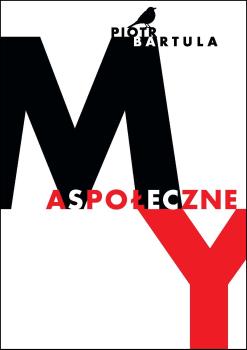Aspołeczne „my”
Słowa kluczowe:
the social, the asocial, battle of flags, theodicy, nominalismStreszczenie
ASOCIAL “WE”
The problems discussed in the book are revealed by the well-known view of Aristotle that man is a cultural, social and political being:
...And he who by nature and not by mere accident lives outside the state, is either a wretch or superhuman being; he is ‘without lineage, law, hearth,‘ as denoted by Homer, because if someone is such a person by nature, he desires passionately war, being isolated, as a stone excluded from dice.
Furthermore,
It appears that the state is a creation of nature and most of all concerns the individual because when each person separately is not self-sufficient, he will be placed in the same relation to the state like these and other parts in relation to a whole. However, one who is unable to live in the community, or does not need it at all, being self-sufficient, such a person is not a member of the state, so he must be either a beast or god.
Directed by the spirit of contrariness, I will add Friedrich Nietzsche’s comment : “Aristotle says that in order to live alone one must be either an animal or a god. The third alternative is lacking. A man must be both – a philosopher.”
Rozdziały
-
TABLE OF CONTENTS
-
Anty-Wstęp: persona non grata (szkice do portretu) .......... 7
-
Aspołeczne „my” .......... 13
-
Bitwa Flag 2009-2011 .......... 33
-
Odpowiedź do Ankiety o aktualności myśli Johna Stuarta Milla .......... 53
-
Przypływy i odpływy ideologii .......... 59
-
Chrześcijański liberalizm Augusta Cieszkowskiego .......... 87
-
Chciwość Absolutu .......... 107
-
Zagadka moralnej przemiany .......... 123
-
Wspomnienie o karze śmierci .......... 137
-
Testamentowa teoria sprawiedliwości .......... 155
-
Równość versus sprawiedliwość .......... 167
-
Nieautoryzowany wywiad z Makbetem .......... 177
-
Satanodycea, czyli jak jest możliwe dobro w świecie rządzonym przez szatana .......... 189
-
Dlaczego jestem nominalistą .......... 205
-
Bibliografia .......... 223
-
Nota bibliograficzna .......... 229
-
Streszczenie .......... 231
-
Indeks osobowy .......... 235
Downloads
Bibliografia





